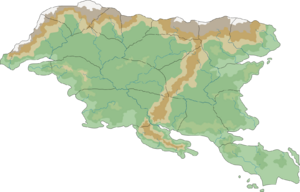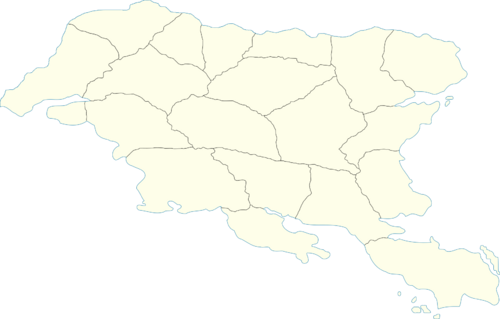Gylias
The Republic of Gylias L'République d'Gylias (French) | |
|---|---|
| Motto: | |
| Anthem: (instrumental) | |
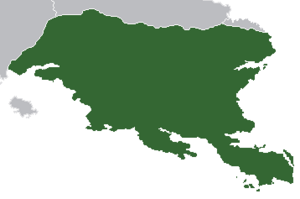 Gylias in Tyran. | |
| Capital | Mişeyáke |
| Largest city | Velouria |
| Official languages | |
| Recognised regional languages | |
| Ethnic groups (2015) |
|
| Demonym(s) | Gylian |
| Government | Federal semi-direct democracy, organised as a republic |
| Frauke Stark | |
| Lena Haidynraix | |
| Legislature | Parliament |
| Senate | |
| Chamber of Deputies | |
| Formation | |
• End of the Liberation War | 2 January 1958 |
| Area | |
• Total | 1,728,328 km2 (667,311 sq mi) |
• Water (%) | 4.73% |
| Population | |
• 2020 census | 24.685.946 |
| GDP (PPP) | 2020 estimate |
• Total | NSD 303,5 billion |
• Per capita | NSD 12,800 |
| Gini (2020) | 22.5 low |
| HDI (2020) | very high |
| Currency | Þaler (Ŧ) (GTH) |
| Date format | dd-mm-yyyy (CE) |
| Driving side | right |
| Calling code | +28 |
| Internet TLD | .gls |
Gylias ([ɡɨˈʎas]), officially known as the Republic of Gylias (French reformed: L'République d'Gylias), is a sovereign country in Tyran. Situated on the eastern end of Siduri, most of its territory is on the continent, and it also includes an insular part. It borders the Ruádak Sea to the east, the Nanshe Ocean to the south and west, and Cacerta and Knichus to the north.
Human settlement in Gylian territory dates back to the Upper Paleolithic, and by 1000 BCE, the Gylic peoples and other populations had established a permanent presence. Their states constituted the Liúşai League in 390 BCE. It bound member states into mutual alliances, encouraged closer ties between different ethnicities, and maintained their independence in the face of various external threats. The League's stability and its maritime culture led to a degree of affluence that attracted migrants.
The League was destroyed by the Colonisation War of 1695–1704, and the states annexed into Xevden, which ruled for two centuries through minority rule. The struggle against institutional discrimination and economic exploitation played an important role in the development of the country's politics and national identity.
Under the pressure of mounting political radicalisation, social strife, and external isolation, Xevden gradually disintegrated in the 20th century. The Free Territories were constituted during the Liberation War, and, following the victory of the People's Army, evolved into present-day Gylias.
Gylias is a federal republic that combines mechanisms of direct democracy and parliamentary democracy, characterised by a high degree of popular participation in governance, policymaking, and planning. It is a multinational country whose demographics, linguistics, and culture derive from diverse origins.
Gylias is a developed country with a market socialist economy and extensive public services. It ranks highly in numerous quality of life indicators such as income equality, safety, health, education, human development, civil liberties and political rights. It has high levels of social engagement on average, and a vibrant civil society. Gylias is a member of the Organization of Tyrannic Nations and Common Sphere, and is regarded as a middle power in international affairs, with a degree of influence in Siduri.
Etymology
The name "Gylias" originates from Anca Déuréy's 1848 poem "My Country (A Ballad)", in the passage "Narn-ku rias mieru-là", which loosely translates as "between the Naryn[s] and the beautiful sea". The spelling "Gylias" comes from a dialectal pronunciation which rendered the line [narˈgɨ ʎas merɨ la].
The name achieved acceptance during the Gylian ascendancy as a common term of identification for the popuations oppressed by Xevden. It was adopted as the country's name after the Liberation War, perceived as a neutral term. In turn, it led to the adoption of "Gylic peoples" as the term to refer to the ethnic groups indigenous to Gylias.
History
Prehistory
The first people inhabited Gylian territory circa 20.000 BCE. Several ancestors of the Gylic peoples moved towards south-eastern Siduri due to the emergence of more complex societies elsewhere, including Arkoenn, Mansuriyyah, Tennai, and Quenmin. The Eşari and Dalak, who arrived by sea and settled on the Iárus and Daláyk islands, have an unclear provenance.
A transition from nomadic hunter-gatherer lifestyles to settled agriculture took place between the 7th and 4th millennia BCE.
Movement by land was initially limited by the Salxar and Naryn Mountains in the north, which were the strongholds of the Yaskan people. The Yaskans' control over these gateways was lost in 9th century wars, allowing further arrivals. The Gylic peoples consolidated distinctive identities, and linguistically or culturally assimilated several newly-settled populations.
Liúşai League
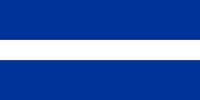
Various alliances among the Gylic states formed over the 5th and 4th centuries BCE, in response to the pressure of Bronze Age collapse and the expansionism of Arkoenn and the Ainetui. These alliances were consolidated into the Liúşai League in 390 BCE.
The League proved remarkably resilient: it endured for over a millennium, and defended Gylic independence against various foreign threats, including Arkoennites, Viking raiders, and Mansuri missionaries.
With low population, maritime-oriented cultures, and broad prosperity, the Gylic states developed in a direction of decentralisation and democratic governance. The multicultural nature of the League was reinforced by migration, which brought in significant minorities such as Miranians, Syaran Hellenes, Lusitans, and Hayeren. Culture, the arts, and science flourished. Contact with Cacerta and Kirisaki laid the foundation for future close ties.
The League continued to thrive after the transition from antiquity to pre-modernity. Democratic currents consolidated into directorial systems and elective monarchies. Advances in shipbuilding and close relations with Kirisaki influenced cultural and technological developments, while the development of infrastructure benefited the economy. The appearance of monotheist religions caused long-lasting tension and conflicts, particularly due to the Quliyasi Jihad.
Kingdom of Xevden
The Colonisation War, launched in 1695, pitted the Liúşai League against Xevden. The war lasted until 1704 and was ruinous: Xevden annexed the Gylic states, but lost its homeland to foreign invasion in the process.
Xevdenite rule resulted in the marginalisation of the native populations, the installation of a ruling alien elite, and the transformation of the economy along aristocratic lines. The state could barely suppress native unrest, which manifested in the proliferation of bandits and guerrilla fighters known as kyðoi, and flared up in the Rebellion of 1749. The rebellion caused a palace coup that brought Senalta on the throne. She negotiated a peaceful end to the rebellion in 1754, signing the Treaty of Aðnat with the rebels.
Senalta established a tenuous peace and governed through enlightened absolutism, turning Xevden into a nominal constitutional monarchy. Native populations were excluded from citizenship but received lesser official status and some benefits. She later converted to christianity and made it the state religion. Intended to strengthen the state, it instead deepened religious strife: Gylics and others clung tenaciously to their traditional religions, while christians underwent schisms.
Senalta's death in 1804 allowed the nobility to reassert their power, putting Xevden down a path of pervasive corruption and administrative decay. The nobility adopted a racist and social spencerist worldview to justify their rule, and the authoritarian course hardened.
Remaining excluded from society and absent serious efforts at cultural assimilation, the native populations underwent the Gylian ascendancy in the 19th century, forming a common Gylian culture and flexible identity. The process included clandestine education, the creation of mutual organisations and cooperatives to improve their economic condition, and the dissemination of radical ideas, such as feminism, communism, socialism, and anarchism.
The Gylian ascendancy's successes at creating institutions and culture outside the Xevdenite state were complemented by the evolution of kyðoi into more organised and modern freedom fighters. The revolution of 1848 and the Glorious Rebellion (1856–1868) underlined Xevden's international and domestic weakness.
The growing crisis split the ruling class between reactionaries and pragmatic traditionalists. The latter gained the upper hand after 1868, and a succession of governments attempted to introduce constitutional and social reforms. These proved too little for the increasingly radical Gylians, and emboldened the agitation of the reactionaries.
Tensions boiled over after the first liberal election victory in 1900. A coup in September 1902 put Karnaz on the throne. Karnaz seized autocratic power, dissolved the legislature, and attempted to suppress threats to his rule. The heavy-handed repression destroyed the Xevdenites' remaining non-elite support, and also proved ineffective due to decades of administrative decay from within.
An unofficial civil war took place during the period, with growing insurgencies and some regions gaining de facto independence. The Cacerta-Xevden War of 1904–1908 compounded the disaster, bringing Alscia into the Cacertian Empire. Under Cacertian rule, the province experienced rapid economic growth and democratic development, becoming a crucial base for Gylian resistance and radicalisation.
Karnaz died in 1934, succeeded by the moderate Láaresy. He ended official repression, released political prisoners, restored rights, and organised a new election. By this point it was too late for a constitutional resolution. Extreme polarisation and the proliferation of paramilitaries characterised Xevden's last years. The 1935 elections were tainted by political violence and fraud, and were followed by a failed coup and similarly violent and inconclusive elections. Factions increasingly prepared themselves for all-out armed struggle.
Liberation War

The Liberation War broke out on 1 January 1938, after a successful rebellion by the People's Army in northern Gylias. Láaresy blocked attempts to crush the rebellion by force and attempted to negotiate a peaceful settlement. The PA stalled negotiations, and violence spread as paramilitaries and newly-armed rebel groups seized territory. By 1939, Xevdenite control was limited to just the Nerveiík peninsula, forming the Nerveiík Kingdom.
The first phase of the war was dominated by Gylian factions fighting for control. The Free Territories were proclaimed in the north, and gradually expanded through alliances and aid for other rebellions. They were organised along anarcho-communist lines, and attracted support due to their robust supply network and anarchist framework, which could accommodate multiple factions and ideologies. The dissolution of the Cacertian Empire led Alscia to join the Free Territories in 1939.
Láaresy's overthrow by Tymzar launched the second phase in 1948. The Xevdenite army launched a large counteroffensive, which initially pushed back the rebels. Prudent retreats, attrition warfare, foreign backing, and two spectacular victories at the Battles of Nerazur and Mytin on 14–15 April 1948 returned the initiative to the PA. The offensive strengthened the Free Territories by uniting the other factions behind them, turning the conflict into a straightforward battle between the Free Territories and Xevden.
The PA slowly but steadily advanced and liberated the rest of the country. The upcoming victory prompted internal reorganisation and preparation for the post-war period. The war ended on 2 January 1958 with the capture of Velouria.
Republic of Gylias
The transition from the Free Territories to Gylias was gradual, and preserved much of the former's anarchist heritage. Conventionally, the transition is dated from 1958 to 1962. It involved reconstruction and reorganisation amid economic challenges, strengthening of local self-governance, and the maturation of Gylian cooperative democracy. The Constitution of Gylias and six codes of law were drafted through popular participation and adopted in 1960–1961.
Some state-like institutions remained in existence, defined as a combination and delegation of local governance structures for the purpose of management and coordination at the federal level. This included the Executive Committee of Gylias, which would be renamed the "Cabinet" by the Constitution.
The Darnan Cyras government became the first federal government of Gylias, in office from 1958 to 1976. It supported and to an extent indirectly guided the Golden Revolution, a profound transformation of Gylian society. Former Xevdenite elites were prosecuted for war crimes, power was invested in communal assemblies, and the political system was opened to small parties. The economy was socialised and organised on the basis of Lange model market socialism, with cooperatives and workers' self-management becoming the new foundation.
An economic boom during the 1960s and 1970s coincided with the height of the Golden Revolution. Living standards rose, and inequality and poverty fell. Aided by cybernetic decentralised planning through the Hermes Programme, the economy relied on light industry, tourism, services, cash crops and production of consumer goods. Several new industries became significant to the economy, including clothesmaking, jewelry, publishing, and musical instruments.
The affluence supported a complex and energetic social revolution, carried out by a profusion of sociopolitical mass movements with assistance and occasional guidance from the government. Society was profoundly liberalised and reformed. Public education was established on progressive and democratic principles, a sexual revolution took place, and a thriving civil society emerged. Culture and the arts flourished as a result of public education and government support, and Gylian music, cinema, animation, and literature achieved regional renown.
Gylias joined the Organization of Tyrannic Nations and Common Sphere, and maintained good relations with many Tyranian states. Its stature as Tyran's most high-profile far-left success story served as inspiration, while its sustained economic growth and high quality of life attracted migrants and refugees.
The spirit of revolutionary exuberance gradually ebbed away by the time the 1976 federal election produced the fragile and fractious Aén Ďanez government. Aén Ďanez sought to move Gylias towards a model of greater industrialisation, central planning of the economy, and greater revolutionary mobilisation. This engendered conflicts with her coalition partners, civil society, and cooperatives. Her time in office was a period of negative economic, political, social, and diplomatic effects for Gylias.
Following a near-outbreak of war with Ossoria in 1986, a galvanised opposition installed Filomena Pinheiro as Prime Minister, leading a national unity government of all parties against the authoritarian far-left and far-right. She helped remedy the effects of the wretched decade, restore the effectiveness of public services and civil service, and begin to arrest economic difficulties. Her tenure saw realignments in politics, the emergence of new independent parties, and established blocs rebuilding their reputations.
Following the 1990 federal election, Mathilde Vieira became Prime Minister, leading a flexible coalition government until 2008. Her term was characterised by economic rejuvenation, modest reforms to the Gylian consensus framework, ambitious public works programs to make Gylian infrastructure and energy more sustainable, and the extensive growth and spread of the Internet and personal computing, which would come to be harnessed for governance and planning purposes. She was succeeded by Kaori Kawashima, who only served one term between 2008 and 2012.
In 2012, Toni Vallas became Prime Minister after winning a federal election. She was followed in 2020 by Lena Haidynraix, leading the first centre-right government at the federal level.
In recent decades Gylias has continued to benefit from steady economic growth, and achieved some successes in foreign policy, among them the special relationships it has cultivated with Kirisaki and Cacerta, and its cooperation with fellow Common Sphere member states.
Geography
Gylias is the fifth largest country in Tyran, with a total area of 1.728.328 km². The majority of its territory is on the Sidurian continent, and it has several islands.
The natural landscape is dominated by flat plains. The main mountain ranges are Salxar, Naryn, and Kackar. The former two mark Gylias' northern border, and the latter divides eastern and western Gylias.
More than half of Gylian territory is not used for agricultural, industrial, or residential purposes. Much of this uninhabited territory is maintained as protected areas, national parks, and nature reserves.
Climate
Gylias has a tropical savanna climate, with areas of alpine climate. The climate has two distinct seasons, and is moderated by prevailing winds and ocean currents.
Demographics
Gylias had a population of 24.685.946 in the 2020 census. Density is approximately 12,5 people per km², with most of the populace clustered around rivers and coastal areas. Nearly 76% of the population is urban.
Gylias is a majority minority country, in which no ethnic group forms a majority by itself. Gylic peoples constitute approximately 60% of the population, and non-Gylic peoples approximately 40%.
Significant non-Gylic populations include Miranians — Gylias' largest non-Gylic group and a significant influence on Gylian society and history —, Italians (Cacertians and Megelanese), Ruvelkans, Nordics, Hayeren, Germans, Hellenes, and Lusitans. Intermarriage between diverse groups is widespread. Certain groups have accumulated significant prestige due to their contributions to Gylian society, culture, and economy, including Miranians, French, Italians, and Hellenes.
Gylians commonly have olive complexions, with both lighter and darker skin colours being present.
Languages
Gylias' official languages are English and French. The latter had previously been the lingua franca during the 19th and 20th centuries, and it retains its importance in society today. Both official languages are strongly represented across public services, education, and broadcasting.
All languages spoken in Gylias, Gylic and non-Gylic, are recognised and accommodated regionally.
Non-Gylic languages spoken in Gylias have at times developed separate dialects influenced by their interaction with Gylic languages, as well as the Gylian languages reform of 1958–1959.
The Languages Board is the main consultative body for languages in Gylias, complemented by various private organisations. Language policy is based on egalitarian and multicultural principles, emphasising lexical modernisation and linguistic maintenance.
Religion
Gylias is officially a secular country, where religious beliefs are regarded as a private matter. Religion-related questions are absent from the census, and it is difficult to accurately estimate the proportions of religious adherence and irreligion.
The most traditionally prevalent practice in Gylias is Concordianism, characterised by decentralisation, syncretism, an emphasis on orthopraxy, and civic orientation. Estimating membership is difficult: participation in practices and rituals does not require faith, and is done more for cultural and societal reasons.
The most successful non-Gylic religions in the country are Sofianism and Kisekidō. Both have proven easy to reconcile with Concordianism, due to their similar harmonious and ethnic character, and benefit from the presence of sizeable Cacertian and Miranian minorities in Gylias.
A historical hostility between the Gylic peoples and monotheist religions began with the Quliyasi Jihad and was reinforced by Xevden's adoption of a monotheist state religion. The universalist and proselytist character of monotheist religions has been a lasting source of antipathy.
Largest cities
| Rank | Region | Pop. | Rank | Region | Pop. | ||||
|---|---|---|---|---|---|---|---|---|---|
| 1 | Velouria | Nerveiík-Iárus-Daláyk | 1.586.868 | 11 | Aðnat | Aðuna | 547.433 | ||
| 2 | Mişeyáke | Mişeyáke | 1.537.427 | 12 | Etra | Arxaþ | 543.337 | ||
| 3 | Kyman | Nezyál | 1.117.313 | 13 | Estro | Herlan | 530.684 | ||
| 4 | Argyrokastron | Elena | 890.838 | 14 | Deðras | Ḑarna | 487.340 | ||
| 5 | Lænas | Sváen | 833.040 | 15 | Senik | Alţira | 446.430 | ||
| 6 | Maveás | Tomes | 814.578 | 16 | Garés | Alţira | 371.036 | ||
| 7 | Arnak | Herlan | 802.376 | 17 | Kaşa | Tomes | 284.614 | ||
| 8 | Riáona | Ḑarna | 759.200 | 18 | Arxas | Nauras | 267.700 | ||
| 9 | Kanedras | Kausania | 680.429 | 19 | Narsiad | Herlan | 245.985 | ||
| 10 | Ostara | Nauras | 556.900 | 20 | Vilêna | Arsad | 222.828 | ||
Economy
Economic ownership in Gylias (2020)
Gylias is a Lange model market socialist economy, characterised by decentralised planning and workers' self-management. It is a post-industrial economy where the service sector contributes to 70,7% of the country's GDP, followed by industry with 25,2% and agriculture and mining with 4,1%. Significant aspects include strongly-regulated markets, generous social security, low inequality, a large public sector, and cybernetics-based coordination and distribution, which form the Gylian consensus.
The Gylian economy is based on cooperatives. By law, any firm established in Gylias must be organised as a cooperative. Private property does not exist in Gylias, while the right to personal property is inviolate. Possession is governed by usufruct rights. Gylian companies are owned and managed by their workers, using various models of workplace democracy. Profits that may accrue to the firms are distributed to their employees equally as social dividends. Companies are affiliated to larger cooperative federations, constituted based on economic sector or activity, which in turn are federated into the National Cooperative Confederation.
Public policy
Gylias has a large public sector, constituting 52,7% of the GDP. The population below the poverty threshold, when adjusted for taxes and transfers, is 4%. Inequality has remained low, as a result of egalitarian social mores, public policy, and cooperativisation. Several sectors of the economy remain in public ownership, including postal services, railways, highways and airports, pharmacy, energy, and water. The overall level of taxation is among the highest in Tyran, at 51,9% of GDP. The Gylian tax system is broad-based, and reliant on direct taxation and Pigovian taxes.
Decentralised planning is carried out through the Hermes Programme, a distributed decision support system that allows real-time collection of accurate information on the economy. The population takes part in planning through the Cybervote system and communal assemblies. Prices are set by the National Prices Board based on existing supply and demand, with the aim of achieving Pareto efficiency. The National Capital Investment Board directs domestic capital and foreign investment on the basis of social priorities.
The unionisation rate is 90%, one of the highest in Tyran. All trade unions and workers' associations are federated into the General Council of Workers' Unions and Associations (GCWUA), the national trade union centre. Closed shops and union shops are the norm for workplaces, and workers in large companies elect supervisory boards to supervise the executive boards. Annual average working hours are among Tyran's lowest. Wages are set by collective bargaining, and the gaps between the wages of ordinary workers and executives are small or nonexistent.
Economic sectors
Gylias' sizeable mineral reserves were nationalised at independence and remain in public ownership. The public organisations in question maintain a monopoly on extraction of raw materials, and their profits are redistributed as social dividends to Gylians. Forests play a key role in the country's economy, making it one of Siduri's leading producers of wood and timber products. Most of Gylias' electricity is provided by renewable sources. The major sources of energy are hydroelectricity, solar power, wind farms, and nuclear power.
The agricultural sector is highly subsidised and protected. It is dominated by tropical agriculture, and is split into domestic and export-oriented sectors. About 40% of the country's land is used for crop cultivation and animal husbandry. The fishing industry was gradually shut down starting in the 1990s, replaced by aquaculture. A system of supply management for agricultural goods is in place, administered by the Directorate of Supply Management with a mandate to ensure stable prices for farmers and consumers.
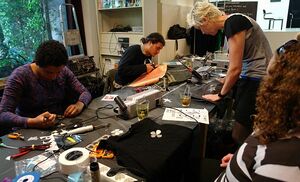
Gylias' industrial sector is dominated by light industry, with comparatively little heavy industry. The only significant heavy industries in Gylias are shipbuilding and shipping, the energy industry, metalworking, and some automobile manufacturing. Major industries include clothesmaking and textiles, jewellery manufacturing, food and beverage processing, musical instruments manufacturing, toy manufacturing, cement and fertiliser manufacturing, woodworks and paper mills, construction, pharmaceuticals, consumer electronics, and biotechnology.
Gylias is a significant nation in Tyran's computer and electronics industries. Its computer and IT industries possess several traits that set them apart, including the dominance of free and open-source software and operating systems, existence of public platforms for digital distribution, and use of cryptocurrencies.
Average spending on research and development is high. Much Gylian research has focused on using technology and innovations to increase productivity in order to reduce work and maximise free time. The Institute for the Protection of Leisure is the leading institution in this field, and the pursuit has produced significant Gylian contributions to cybernetics, sociology, and life sciences.
Major components of the service sector are the creative industries and cultural industry, publishing, transportation, telecommunications and IT, education and healthcare, banking, retailing, and the leisure industry.
Finance is dominated by cooperative banking, with credit unions, mutual organisations, and savings banks being the main institutions. Banking institutions are organised into regional cooperative federations, which in turn form the National Popular Banking Association of Gylias, a member of the NCC. Gylian Post and Telecommunications also offers postal savings and banking services.
Tourism is an important component of the Gylian economy. Gylias is one of the more popular tourist destinations in Siduri. Factors driving tourism include the country's tropical climate, numerous national parks and reserves, beaches and seaside resorts, skiing and winter sports in mountainous areas, cities and areas of high cultural interest, and liberal stances on regulated recreational drug use and prostitution.
Currency
Gylias' national currency is the Gylian þaler (Ŧ). Introduced in 1958, the þaler suffered from a comparatively high level of inflation during the National Obligation period, while the National Prices Board began setting prices by trial-and-error. To this day, it remains one of Tyran's less valued currencies. No redenomination has ever been undertaken.
The þaler has coexisted with various complementary currencies since independence. This creates an unofficial dual or parallel currency system in the country. Many local currencies exist in Gylias, often time-based or demurrage-based, and are used in local exchange trading systems. They operate at parity with the þaler, and function as the base of a widespread system of mutual credit.
The þaler is a managed float currency, with its value pegged to those of other Common Sphere member states as a result of economic coordination. Its exchange rate is generally in the range of 1 NSD = 200-300 Ŧ.
Distribution
Gylian markets are the sum of all voluntary exchanges, monetary or non-monetary. They are governed by the norm of reciprocity and thus manifesting traits of gift economy. Manifestations include the widespread use of local currencies, alternative currencies, local exchange trading systems, mutual credit and mutual aid, and numerous organisations and voluntary associations that facilitate such exchanges.
Permanent markets coexist with community markets: periodic community gatherings where participants bring unneeded items and food, as well as skills, talents, and knowledge, which are shared, exchanged, or bartered. Both community and public markets can be organised anywhere and anytime, with Friday being traditionally used as a market day.
Merchants, those who sell goods and food in urban areas, are a profession with a significant position in Gylian communities and the economy.
The strength of Gylias' public and community distribution systems have allowed convenient access to consumer goods for Gylians, contributing to a high quality of life on a relatively low GDP per capita. The Gylian economy is characterised by relatively high velocity of money and near-equalisation of wages and prices in practice, leading some theorists to consider it Tyran's only functioning example of social credit.
Trade
Gylias' main trading partners are its fellow Common Sphere member states, particularly Cacerta and Kirisaki. Significant non-CS trading partners include Allamunnika, Schottia, Ossoria, and Acrea.
The main exports are clothing, electronics, cement, musical instruments, pharmaceuticals, sugar, foodstuffs, timber, paper and pulp, rubber, coffee, chocolate, tobacco, and various other consumer goods.
The main imports are automobiles, machinery and equipment, thorium, raw materials and semimanufactures for industry, iron and steel, and chemicals.
Foreign trade is affected by strongly-regulated domestic markets, which favour local companies, and the maintenance of capital controls and foreign exchange controls. Foreign investment is discouraged by high tax rates, although it has increased beginning in the 1990s.
The relative isolation of the Gylian economy from the regional economy has resulted in the phenomenon of a strong focus on the domestic market, which affects Gylian companies' international competitiveness. The different evolution of Gylian society similarly tends to discourage international work placements among Gylian workers.
Government
Gylias is a federal republic. The strong influence of anarchism is manifested in the extensive bill of rights and governance based on principles of grassroots democracy. The three main governing bodies at the federal level are the Gylian Parliament (legislative), the Cabinet of Gylias (executive), and the Court of Cassation and Constitutional Court (judicial).
The President is the "main counselor and arbiter of the people", according to the Constitution. They are elected by Gylian voters in presidential elections. The President fulfils a mainly ceremonial figurehead role, and carries out representative and practical functions with the advice of the cabinet.
The Gylian Parliament consists of two houses: the Chamber of Deputies and the Senate. The Chamber of Deputies is elected using single transferable vote from local circonscriptions. The Senate is chosen by a combination of sortition and appointment. The Parliament serves more of a deliberative and delegative role within the political system. Its members are subject to imperative mandates and recall from their constituents, and serve part-time under the principle of popular legislature.
The Cabinet of Gylias constitutes the federal government, chaired by the Prime Minister. The cabinet functions according to a collegial system, where ministers share equal prominence and autonomy in carrying out their duties. The Prime Minister's main role is thus the formation of the government and establishing its direction. The cabinet sets the governing agenda and prepares preliminary resolutions and decisions for the Parliament to consider.
All Gylian governments since independence have been coalition governments. A record number of parties have legislative representation, which confederate into electoral blocs based on ideology. Regionalist parties, localist parties, and independent candidates and organisations are dominant at the regional and local level. All legislatures are popular legislatures, which has contributed to a trend of non-politicians — academics, artists, representatives of civil society and other notables — participating in legislatures and governance.
Public administration is dualistic: the government establishes policy, but the civil service carries it out of its own accord, through administrative agencies.
Direct democracy
Constitutionally, legislative power is vested in the people, which in turn can be delegated to larger institutions based on the principle of subsidiarity. Municipal, regional, and federal assemblies and agencies exist primarily for coordination and management purposes, balancing competing interests and ensuring fair development through a system of cooperative democracy.
Local issues are handled by weekly communal assemblies, selected partly by sortition, where deliberations take place and decisions are made. Other significant instruments of direct democracy in Gylias are local and regional advisory councils, the Committees for the Advance of the Revolution (CAR), the system of popular initiative, and the change to a sortition-based Senate.
Popular initiatives can be organised at the federal, regional, or municipal level. Proposed laws or constitutional modifications, as long as they do not contravene the Constitution, can be put to a vote if they have collected 10.000 signatures within 100 days, with voters deciding by a simple majority whether to approve or reject. In addition, referendums can also be called to repeal existing laws, or to recall elected officials before their term expires.
The direct democratic elements of the Gylian system have benefited heavily from the expansion of information and communications technology since the 1980s. Electronic voting is used at local levels to address issues. The Hermes Programme allows for both participatory planning and participatory budgeting through the Cybervote system, in which individuals can submit proposals, deliberate, and vote on planning decisions. Currently, all government budgets are largely implementations of popular initiatives, with little ability to enact policies unilaterally.
Law
Gylias has a civil law system, based on the Constitution of Gylias and six codes of law. The judicial system has two supreme courts: the Court of Cassation of Gylias, which deals with all civil and criminal cases, and the Constitutional Court of Gylias, which ensures compliance with the Constitution and handles administrative cases. Both courts have 9 members, appointed for a single 9-year term by the President, and must meet a high standard of judicial knowledge and practice.
Criminal laws are codified at the federal level according to the civil code and penal code. The penal system is aimed mainly at rehabilitation of convicted criminals and protection of the public. A nonadversarial system is used in Gylian law, in which courts are actively involved in investigating and establishing the facts of the case. Bench trials are used to resolve cases. Prisons do not exist, with other sanctions being used in their place.
Since the 1990s, all laws are passed with defined success metrics and automatic sunset provisions, and the respective legislature can reenact it for another period if it has proven successful and remains relevant.
Gylias is strictly secular in the public sphere, guaranteeing freedom of religion but not recognising any form of religious law. Extensive anti-discrimination legislation includes prohibitions on hate speech. Gylian jurisprudence is known for its emphasis on concise, clear, and accessible expression of law.
Law enforcement
Several institutions enforce the law in Gylias, independent of governments. The Gylian Police handles main police matters and has a very broad-based role in Gylian society, with additional civil duties complementing their law enforcement mandate.
The Popular Guards are the police tactical units of Gylias. Training is similar to the Gylian Police, but organisation has gendarmerie aspects. Their duties include counter-terrorism, hostage rescues, and protecting important buildings and people.
Both institutions coordinate with Special Public Security Bureau 9, the country's main intelligence agency, whose duties include both domestic and foreign counterintelligence.
Gylias' crime rate is among the lowest in Siduri, and its law enforcement is known for its efficiency, community policing, and stringent training to prevent authoritarian personalities from entering law enforcement. The police have a positive reputation, and are considered one of Gylias' most prestigious — yet demanding — occupations.
Local government
Local government is based on municipalities (municipalités), which can combine their resources and responsibilities into larger administrative bodies such as city councils.
Municipalities are federated into regions (régions). These are largely used for administrative and coordinating functions. Both municipalities and regions have a high degree of independence, in accordance with the principle of subsidiarity.
The federal, regional, and municipal governments collaborate in delivering public services. Each has control over certain taxes and responsibility for certain services reserved to it.
| Flag | Region | Abbr. | Capital | Area (km²) | Population | |
|---|---|---|---|---|---|---|
| Salxar | SL | Şet | 77,390 | 202.425 | ||
| Makarces | MK | Jaţe | 52,925 | 185.145 | ||
| Gacar | GC | Razyn | 58,362 | 199.956 | ||
| Gerşyr | GE | Mytin | 61,453 | 207.362 | ||
| Arxaþ | AR | Xakalen | 105,906 | 878.820 | ||
| Alţira | AŢ | Senik | 83,733 | 920.786 | ||
| Tandar | TA | Sænor | 96,738 | 802.293 | ||
| Kausania | KA | Dáuzas | 104,466 | 1.555.215 | ||
| Mişeyáke | MŞ | Zaul | 112,408 | 2.653.739 | ||
| Sváen | SV | Lænas | 17,001 | 1.160.239 | ||
| Elena | EL | Argyrokastron | 65,344 | 1.826.760 | ||
| Arsad | AS | Keraþ | 108,304 | 713.424 | ||
| Envadra | EN | Mayt | 113,781 | 962.752 | ||
| Nezyál | NE | Kyman | 65,451 | 1.486.094 | ||
| Tomes | TO | Iásas | 132,662 | 1.974.876 | ||
| Ḑarna | ḐR | Deðras | 87,464 | 1.550.277 | ||
| Aðuna | AÐ | Tavis | 92,421 | 1.579.901 | ||
| Herlan | HE | Arnak | 70,941 | 1.752.702 | ||
| Nauras | NA | Nyretak | 59,801 | 1.370.070 | ||
| Nerveiík-Iárus-Daláyk | NID | Eyþer | 141,776 | 2.703.111 | ||
| Data from the 2020 census conducted by the Bureau of Statistics and Accounting. | ||||||
Foreign relations
Gylian foreign policy is based on principles of neutrality, non-alignment, and pursuit of multilateral solutions. Its role in international diplomacy, and more recent involvements in peacekeeping, are significant to the country's global image. Gylias is considered a middle power within Siduri and possesses a degree of influence in Tyran on account of its work as part of regional organisations and support of ideals of democracy, human rights, egalitarianism, and social justice.
Gylias is a member of the Organization of Tyrannic Nations and the Common Sphere. It has particularly close ties with Cacerta and Kirisaki, which are considered special relationships, and has also built close relations with Allamunnika since the 1990s. It is also party to a mutual defense treaty with Ossoria, which possesses a naval base at Eltykan.
Gylias' poorest relations are generally with countries characterised by authoritarian governments or the predominance of socially conservative norms in society. Relations with Æþurheim have seen some improvement due to Æþurian interest in Gylian popular culture.
Education
Education in Gylias is notable for its strongly anarchist influences. The Gylian educational system is based on progressive and democratic principles, and student-centred learning methods predominate. Educational institutions are run through direct democracy, students and teachers are equals, and students can propose classes and topics.
Public education is dominant. The Ministry of Education and Research establishes the framework for education in consultation with the public. The framework is flexible, aimed at meeting students' needs, and encourages experimentation. Municipalities arrange most pre-tertiary education, and fund and administer the respective institutions. Higher education is equally a municipal, regional, and federal responsibility.
Education is legally defined as a public good, and can not be done for profit. Public education is completely free at all levels and funded by taxation. Private institutions include anarchist free schools, specialist language schools, overseas educational institutions active in Gylias, and schools based on particular pedagogical methods such as Montessori education.
A wide array of additional institutions and services provide education, including community classes, evening classes, night schools, adult education, community markets and "popular libraries", infoshops, and distance education. The most famous distance education institution is the Open University.
Education is compulsory between the ages of 6 and 15. The school year lasts nine months, beginning on 1 September and ending on 1 May. The last week of December and first week of January constitute the winter break, separating the year into two academic terms, and summer vacation lasts from 1 June to 31 August.
Health
Gylias has a universal health care system, called the National Health System. The NHS is entirely funded from taxation, and organised at the federal, regional, and municipal level. It is free at all points of use, and does not collect any service fees. Private hospitals are rare and private insurance practically nonexistent.
A considerable portion of the federal budget is assigned to healthcare. Spending on health is particularly high, at nearly 11% of GDP in 2019. The largest contributor to this is a public monopoly on pharmacy, which allows Gylians to access medicine for free.
Overall, the system is well-performing: it ranks highly in life expectancy and doctor to population ratio, and has low rates of child mortality, diseases of affluence, and sexually transmitted diseases.
Gylias has many campaigns for health and wellbeing, coordinated by the health and education ministries. A license-based system is used for distribution of alcohol and drugs, overseen by the Controlled Substances Administration. Widespread harm reduction policies and preference for consuming drugs orally contributes to a low rate of infections caused by contaminated hypodermic needles.
Transportation
Gylias has an extensive public transport system, which encompasses 1,5 million kilometres of roadway, 30.485 kilometres of railways, and various urban transit systems.
Public policy is aimed towards discouraging car use and encouraging public transport. The majority of automobiles are plug-in electric vehicles, hybrids or run on biofuels. Electric vehicle conversion forms the basis of Gylias' automotive industry.
Cycling is a ubiquitous mode of transport. The comprehensive cycling infrastructure encompasses some 40.000 km of segregated cycle facilities, bicycle routes, large bicycle parking facilities, bicycle-specific traffic lights in urban areas, and bicycle highways linking major cities and protected areas.
A majority of cities have metro systems. Other forms of public transport include buses, trolleybuses, trams, light rail, and monorails.
The rail network is dense, and known for its safety and punctuality. A significant part of it is represented by high-speed rail and urban rail systems.
Air and water transport are similarly well-developed, the latter with a long history.
Culture
Gylian culture has been influenced by history, population diversity, and cultural connections with other nations, producing a rich cultural and artistic tradition.
Gylian society is modern, liberal, and strongly progressive. It has a reputation for social experimentation and permissive liberalism, reflected in attitudes towards gender and sexuality, extensive anti-discrimination laws, and high levels of social equality.
Gylian society emphasises egalitarianism, reciprocity, and cooperation, and is known for its deep sense of community. Society is generally informal with an adherence to basic behavioural norms, resulting in open and direct manners and a lack of taboos that can be mistaken for rudeness by other cultures. Gylians typically refer to themselves by first name.
Gylias has a thriving civil society with an extensive network of institutions — including associations, foundations, community organisations, consumer organisations, social cooperatives, sports clubs, salons, and scouting organisations — and a high rate of volunteering.
Uniquely for a strongly anarchist-influenced nation, Gylian society has developed an ideal of socialised luxury as a defining trait. Luxury, elegance, and refinement are accepted ideals, subordinated to existing norms of solidarity and reciprocity.
Other notable concepts unique to Gylian society include gehenta, the wicked–evil distinction, and the adversary–enemy distinction.
Music
Gylian music is eclectic and diverse. Its long and varied history includes the traditional and folk music of Gylias' various populations, art music and opera (which overcame the stigma of association with Xevden through modern and contemporary developments), experimental music, and a variety of forms of popular music.
Gylian pop music has had a great impact throughout the region through the Gylian Invasion. The Beaties are the biggest-selling and most influential band in the history of popular music. They established rock music as a significant force, and profoundly influenced pop music. Other influential acts of the period included The Byrds, The Watts, The Dandys, and The Wells.
Notable genres originating in Gylias include the Gylian Sound — and its later incarnation — and shoegazing, while genres that have attained significant development include dance-rock, psychedelic music and space rock, jazz fusion, electronic music and hip hop.
Gylias' lively music scene is characterised by camaraderie among musicians, artist-driven organisation, and an adventurous ethos and experimentalism. These factors have proven attractive to foreign acts that have either worked or relocated to Gylias.
Cinema
Gylian cinema is vibrant and has achieved a degree of international recognition. Gylias has a high rate of film production per year and benefits from government support and protections. Gylian films and series are noted for their technical innovation, slice of life storytelling, emphasis on characterisation, and sexual frankness.
Domestic films overwhelmingly dominate the Gylian film market, resulting from cultural protectionism and different audience tastes engendered by Gylian society. Similarly, few Gylian films gain comparable success abroad. Recently, more films and series, such as those created by Dreamwave Productions, have become internationally successful.
Gylias has a well-developed television market, with multiple community, and private broadcasters aimed at both general and specialised audiences. As with cinema, domestically-produced series dominate the market, with a few of these having also been exported to international success.
Gylias has a highly-developed animation industry, with a strong influence from Kirisaki and Akashi that has earned the nickname "Gylianime". It is characterised by colourful graphics, vibrant characters, fantastical themes, diversity in genres and themes, and slice of life storytelling. A high proportion of television series made in Gylias are animated.
Gylias' reputation for artistry has made it attractive for foreign artists, while the þaler's low exchange rate has incentivised filming in Gylias.
Literature
Gylian literature dates back to ancient folklore and myths, and experienced significant development during the Liúşai League. Literature during the 16th–17th centuries was strongly influenced by Kirisakian genres zuihitsu and nikki bungaku, creating a trend twoards books that connected essays, fragmentary ideas, stories, observations, and random musings.
Following a long interruption by Xevdenite conquest, modern Gylian literature emerged with the Gylian ascendancy. Influential authors of the period include Anca Déuréy, the "mother of Gylian literature", and Angeline Dalles, whose satire and black humour had a significant contribution to Gylian culture, particularly by introducing the wicked–evil distinction. The freedom of Alscia, and the subsequent transformations of the Free Territories and Golden Revolution, have allowed Gylian literature to thrive into the present.
Gylians are avid consumers of literature. Gylias has one of the highest levels of bookstores and libraries per capita in Tyran, as well as publication of books and magazines per capita. One estimate finds that around 20% of the population will publish a book in their lifetimes. Various periodical outlets for literature exist, from general interest magazines that publish fiction — such as L'Petit Écho and Silhouette — to specialised literary magazines such as Downtown, Surface, and The Current.
Art

Gylian visual arts have a long and distinguished history, and cover a wide range of styles and media. Their evolution during the Liúşai League set a precedent for importing ideas from abroad and synthesising them with native aesthetics.
Modern Gylian art began in the 19th century through the Gylian ascendancy. Incorporating contemporary influences and influenced by the political elements of Gylian identity, it was animated by a spirit of resistance to Xevden.
Alscia, the Free Territories, and independence liberated Gylian visual arts, which embraced newer styles. Avant-garde influences were introduced and combined with local forms and tastes. The dismantling of barriers between high culture and popular culture fostered by the Golden Revolution has had a profound impact on Gylian art.
Significant influences on Gylian art have been Art Deco, demopolitanism, and gauchic. The latter has played a role in Gylias' thriving illustration and photography, and serves as a foremost representative of the ideal of "socialised luxury".
Fashion
Clothing is one of Gylias' most important industries and cultural exports. Gylian clothesmaking reflects the egalitarian ethos that pervades society, emphasising custom-made and individually tailored items of clothing. Gylian clothing designs are characterised by diversity, comfort, and style. Appearances are defined by casual glamour, elegance, and quirkiness.
Gylias has no fashion industry in practice. Clothing is made specifically for the individual wearer. Market socialism in the economy and a strong mistrust of advertising preclude the emergence of events characteristic of fashion industries, such as fashion weeks and fashion shows. Periodicals and publications that focus on clothing do not proclaim trends or enforce particular styles on the population at large.
Gylian society has a liberal attitude towards clothing — not observing dress codes — and an accepting one towards nudity.
Numerous clothing companies exist in Gylias. A thriving jewellery and cosmetic industry complement the clothesmaking industry. Their strength as a cultural export have earned Gylias the reputation of a country of beauty and accessible luxury.
Media
The Gylian media landscape is highly diverse. Gylians are avid readers and consumers of media: press circulation, radio listenership, television viewership, and internet access figures are among Tyran's highest.
The media is shaped by the economic system, strong competition laws, and press support. All media companies are cooperatives. Ownership is limited to one newspaper, radio station, and television station at once per entity.
Public broadcasting is funded through a license fee. Community and public-access broadcasters are non-profits run by volunteers. Private stations are funded by viewer contributions, some advertising, private donations, subscription fees, or other means. Periodicals' business models are based on direct sales and subscriptions.
A variety of newspapers exist at the local, regional, and federal level, including free newspapers and alternative newspapers. Most federal newspapers have English and French editions, while regional and local ones are also printed in their respective regional languages.
The public Gylian National Broadcasting Service operates four national radio stations through Gylian Radio and five national television stations through Gylian Television. It had a monopoly on federal radio and television transmissions from 1958 to 1991. Private broadcasting thrived at the regional and local level, with community radio and public-access television establishing a strong presence. Private broadcasting expanded at the federal level since 1991, but public broadcasting retains the largest audience share for both television and radio.
Associated Television emerged as the leading private broadcaster during the 1960s. It is an association of Gylias' regional and local television channels, allowing them to share programmes so as to be displayed on the entire network. 5 was the first national private channel to begin broadcasting after the end of GTV's monopoly. It is the most successful French-language channel in Gylias.
Digital television was introduced in 1999, and analogue broadcasts were subsequently terminated in 2009 after a lengthy preparatory period.
Gylias has a highly developed internet culture. Nearly 99% of the population has internet access, with computers being similarly widespread. All Gylian schools and public libraries have internet connections and computers. Gylias was an early adopter of computers and the internet starting in the 1990s — shown by its flourishing demoscene —, and is notable for regulating the internet as a public utility.
Sport
Sports are popular in Gylias, and the population is generally quite active. Football is the national sport, with over 400.000 players in more than 35.000 clubs. Other popular sports include swimming and cycling, volleyball and basketball, tennis, and chess. Gylians generally gravitate towards team sports, but some individual sports also enjoy popularity, such as figure skating and gymnastics.
Several martial arts have gained popularity through cultural ties with Kirisaki. These include kendo and fencing, jujutsu, judo, and aikido. They have helped shape rezy, a distinctive form of professional wrestling that de-emphasises violence in favour of theatrics and athletic grace.
Gylian sports is known for its communal character and sportsmanship. Sports leagues do not exist; all sports events are organised as friendly matches, and scores are considered secondary to the enjoyment of the players and the audience. Teams and their fans have friendly relations with other teams, and football chants are generally lighthearted and amiable. Most Gylian sports players manage entire careers without being cautioned or sanctioned for unsporting conduct.
Sports have a semi-amateur character due to the economy. Teams and venues are largely supported by a combination of donations, government grants, ticket sales, and contributions from wealthy Gylians, largely eschewing sponsorship.
Cuisine

Gylian culinary traditions are influenced by the country's farming practices and seafaring history. It is mainly based on vegetables, fruits, seafood, dairy products, and grains.
Gylian cuisine is defined by simplicity and frugality. Meals are served as the same time; serving sizes tend to be small. A strong taboo against food waste is manifested in widespread practices of gleaning, food rescue, and freeganism. The taboo and strict animal welfare legislation lead to the use of every part of a dead animal's body for food.
Animal slaughter is banned. Meat is made out of the bodies of animals that have died of natural causes.
Gender relations and sexuality
Gylian norms regarding gender, nudity, and sexuality were radically liberalised in the Golden Revolution. Current society has highly progessive attitudes towards these subjects.
Gender identity is seen as a spectrum, with the individual determining their own place on it. Non-gendered pronouns are the customary forms of address. When meeting someone, Gylians will ask what pronouns they prefer, and use the ones indicated. The media features disclaimers before a story noting how certain preferences were expressed, and thanking subjects for giving them permission to use gendered pronouns.
Sexuality and nudity are treated casually, without any taboos. It is common to see people in various states of nudity in public, with the Ministry of Health only providing guidance to avoid sunburn. Sex education in schools is comprehensive and mandatory, treatments for gender dysphoria are covered by the NHS, and sexual protection is extensive. Social openness towards sexuality is reflected in the positive and accepting treatment of it in popular culture.
According to the Constitution, marriages are non-gendered. There are other equivalent arrangements provided by law, such as civil unions and official cohabitation. The law recognises polyamory and provides the possibility of group marriages, with the consent of all the involved parties.
Public holidays
All official public holidays are established by government legislation. They are secular by law, and generally have historical significance.
The current federal holidays are:
| Date | Name | Notes |
|---|---|---|
| 1 January | New Year's Day | The exact date is a day of rest. Every four years, it is also the day Parliament is officially dissolved and the federal election period begins. |
| 2 January | Rememberance Day | Commemorates the end of the Liberation War. |
| 8 March | Equality Day | Gylian-specific, gender-neutral observance of International Women's Day. One of the official holidays with a strong political character. |
| 15 April | Tax Day | The day tax returns are due. Features celebrations of contributions to society through taxation, volunteering, and philanthropy. |
| 29 April | Constitution Day | The date of the 1961 referendum that ratified the Constitution of Gylias. Due to proximity to May Day, 30 April is an unofficial holiday as well. |
| 1 May | Labour Day | International Workers' Day. Commonly referred to as "May Day". |
| 1 June | Summer's Day | Official beginning of summer vacation, which ends on 1 September. |
| 31 December | New Year's Eve | The exact date is a day of rest. |
| Various | Election Day |
|
Various other holidays are observed regionally and locally.
Self-Defense Forces
Gylias does not legally have a military. The equivalent is the Gylian Self-Defense Forces (GSDF), a set of unified armed forces with the purpose of defending Gylian sovereignty. The GSDF is legally one organisation with a unified chain of command, with land, sea, and air elements. It is governed by the Ministry of Defense, with the President as the legal commander-in-chief.
The GSDF is the direct successor of the People's Army that won the Liberation War. Its character is closer to a militia than a professional military, which sets it apart in Tyran. GSDF members are legally civilians, governed by the Constitution and Civil Code. Hierarchies are deemphasised, and relations between the various GSDF ranks are marked by relative social equality. The GSDF functions on the basis of "revolutionary discipline", a democratic form of organisation and training that emphasises consciousness and understanding of why certain orders are issued and must be obeyed.
The GSDF's mission is restricted by Article 11 of the Gylian constitution, which renounces the right to declare war or use force in international disputes. Being primarily defense-oriented, it does not possess equipment that would create offensive capabilities. Similar to the Gylian Police, it maintains civil functions in addition to its defense role, aiding the population in various capacities.



